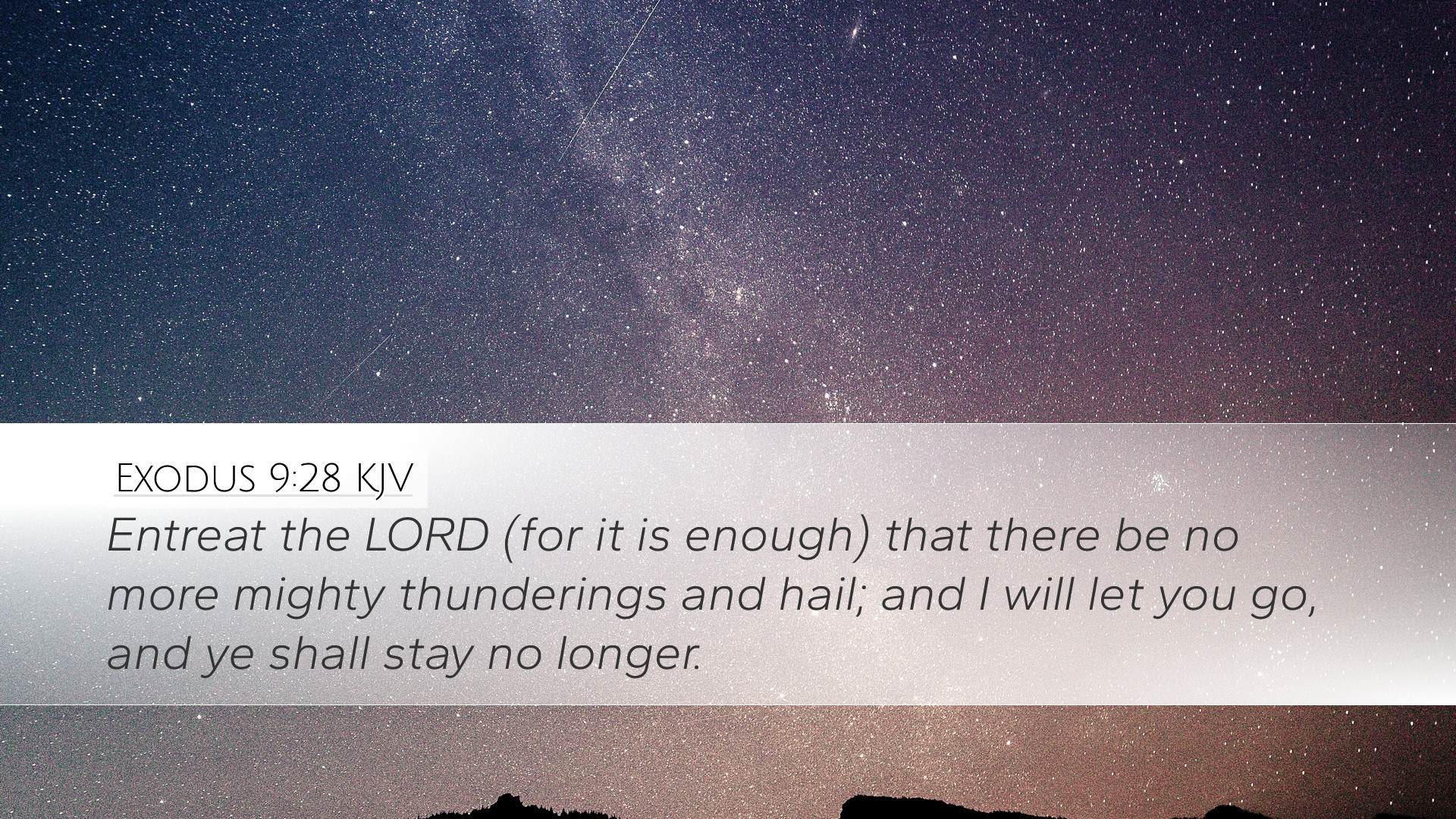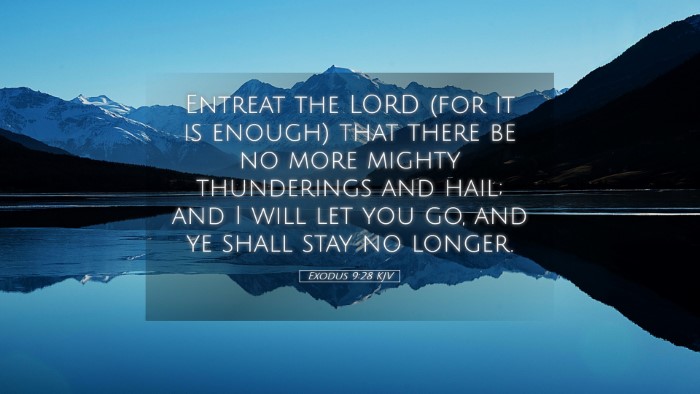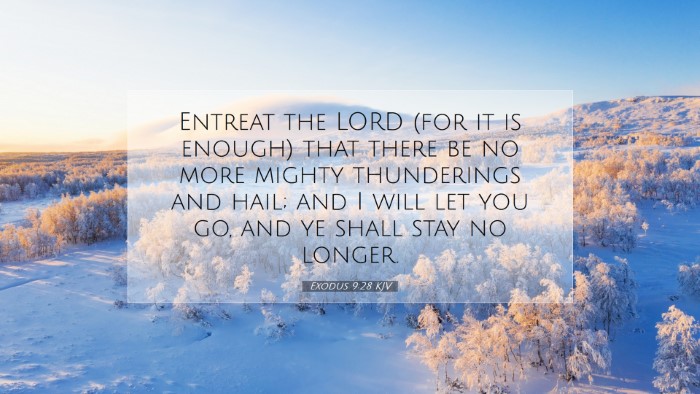Commentary on Exodus 9:28
Verse: "Entreat the LORD for it is enough that there be no more mighty thunderings and hail; and I will let you go, and ye shall stay no longer."
Introduction
Exodus 9:28 occurs during the plagues of Egypt, specifically during the seventh plague, which involved hail. The verse represents a critical moment in the dialogue between Moses and Pharaoh, where the consequences of Pharaoh's hardened heart are evident. This commentary integrates insights from Public Domain Commentaries, providing depth to the interpretation of this significant biblical passage.
Contextual Background
The Book of Exodus narrates the Israelites' liberation from Egyptian bondage, underlining the power of God over earthly authorities. In the prior chapters, Moses confronts Pharaoh as God's chosen messenger, yet Pharaoh's heart remains obstinate despite the plagues' devastating effects. Plagues serve as both a demonstration of divine sovereignty and a means to compel Pharaoh to release the Israelites.
Insights from Matthew Henry
Matthew Henry emphasizes the seriousness of Pharaoh's plea and the gravity of the situation. He notes that Pharaoh recognizes the authenticity of God’s power through the unsettled nature of the hailstorm:
- Pharaoh's acknowledgment: Henry observes that Pharaoh’s request for prayer demonstrates a transient acknowledgment of God's authority, revealing a moment of weakness in his hardened demeanor.
- The mercy of God: The intercession sought from Moses highlights the interplay between divine judgment and mercy. By asking Moses to pray, Pharaoh unwittingly submits to God’s will.
- Importance of intercession: Henry stresses the function of prayer as a powerful tool that can alter the course of divine judgment, exemplifying the role of a mediator.
Insights from Albert Barnes
Albert Barnes provides a detailed analysis of the phrase “Entreat the LORD.” He identifies the significance of this request reflecting both fear and a sense of urgency:
- Fear of God’s power: Barnes highlights Pharaoh's fear is rooted in the overwhelming nature of the plague, stating that the signs of God’s impending judgment instill fear in even the most hardened hearts.
- Recognition of God: Barnes implies that Pharaoh's plea indicates a recognition of the power of God, albeit temporarily, showing how crises can lead individuals towards a moment of clarity concerning divine strength.
- Conditional promise: The promise to let the Israelites go reflects Pharaoh's manipulative nature, as it is contingent upon the removal of the current calamity, revealing his duplicitous character.
Insights from Adam Clarke
Adam Clarke’s commentary delves into the theological implications of Pharaoh's request:
- Human response to divine judgment: Clarke points out that when faced with divine threats, individuals often seek relief but may not truly repent. This reflects the human inclination to seek comfort rather than true submission.
- Prayer as a response: He highlights the act of entreating the LORD as an acknowledgment of human limitation in the face of divine power, suggesting that even the most obstinate can, under distress, call out to God.
- Conditional faith: Clarke notes that Pharaoh’s faith is conditional, expecting relief without a genuine heart change, illustrating the complexities of human faith in the face of divine authority.
Theological Implications
Exodus 9:28 offers profound theological insights. The duality of judgment and mercy is evident, reminding readers that even in divine severity, there is an opportunity for repentance. This passage challenges theological perspectives on God's nature, human free will, and the dynamics of prayer.
- Divine sovereignty vs. human agency: The tension between God’s sovereign acts and human decisions is a significant theme present in this verse, compelling us to reflect on the implications of our responses to divine callings.
- The role of prayer: This verse serves as a reminder of the power of intercessory prayer and its capacity to impact the unfolding of events in human history.
- Nature of repentance: The passage encourages a critical examination of what true repentance looks like, especially in moments of crisis.
Conclusion
Exodus 9:28 encapsulates a pivotal moment not only in the narrative of the plagues but also in the broader context of divine-human interaction. Insights from Matthew Henry, Albert Barnes, and Adam Clarke provide layers of understanding, uncovering themes of divine judgment, human frailty, and the profound importance of intercession.
For pastors, students, theologians, and scholars, this commentary serves as a reminder of the complex interplay of power, fear, and faith in the life of individuals, prompting deeper reflection on the nature of our response to God amidst trials.


